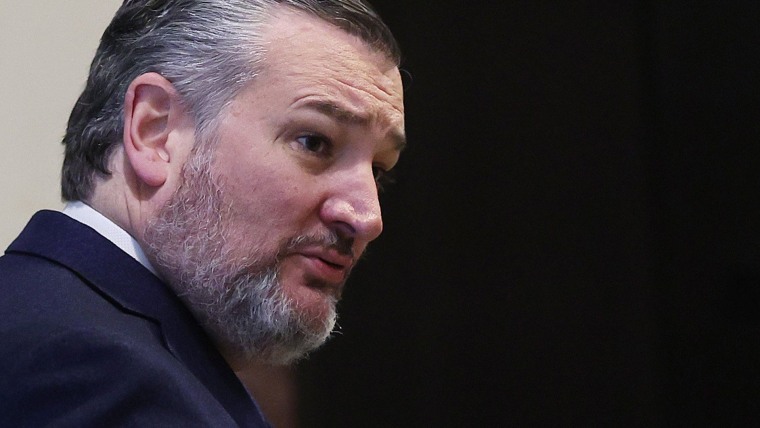It wasn’t that long ago when Republicans celebrated in vitro fertilization. In the first year of his presidency, for example, George W. Bush praised IVF as a breakthrough that “helps so many couples conceive children.”
Fifteen years later, during Sen. Ted Cruz's presidential campaign, the Texan pushed for new restrictions on abortion rights, but quickly added, “I’m not interested in anything that restricts in vitro fertilization because I think parents who are struggling to create life, to have a child, that is a wonderful thing.”
With rhetoric like this in mind, IVF has not been the basis for much political debate in recent years, since it was something both parties could agree on. That’s apparently poised to change. The Washington Post reported:
The Alabama Supreme Court ruled Friday that frozen embryos are people and someone can be held liable for destroying them, a decision that reproductive rights advocates say could imperil in vitro fertilization (IVF) and affect the hundreds of thousands of patients who depend on treatments like it each year.
At issue in this case was whether someone who mistakenly dropped frozen embryos could be held liable in a wrongful-death lawsuit. A lower court said no, concluding that embryonic fertilized eggs were not children under Alabama’s Wrongful Death of a Minor Act.
In a 7-2 ruling, the state Supreme Court came to the opposite conclusion: In Alabama, the justices ruled, an embryo created through IVF isn’t just a potential person, it’s an actual person.
The fact that the court’s decision included specific references to the Christian Bible — in a country in which the government is supposed to be neutral on matters of faith — made it that much more controversial.
But it’s the practical implications of the ruling that are especially striking. Before the decision was issued, the Medical Association of the State of Alabama filed a legal brief, warning of the potential consequences.
“The potential detrimental impact on IVF treatment in Alabama cannot be overstated,” the brief explained. “The increased exposure to wrongful death liability as advocated by the Appellants would — at best — substantially increase the costs associated with IVF. More ominously, the increased risk of legal exposure might result in Alabama’s fertility clinics shutting down and fertility specialists moving to other states to practice fertility medicine.”
Complicating matters is the question of whether other states will follow. The Post’s report noted, for example, that at least 11 states have broadly defined “personhood” as beginning at fertilization, raising fresh questions about the future of IVF treatments across the country.
Dana Sussman, deputy executive director of Pregnancy Justice, told the Post, “This is a natural extension of the march toward fetal personhood. You only need one state to be the first out of the gate, and then the next one will feel less radical.”
There was no reason to believe IVF would be a campaign issue in 2024. That appears likely to soon change.

